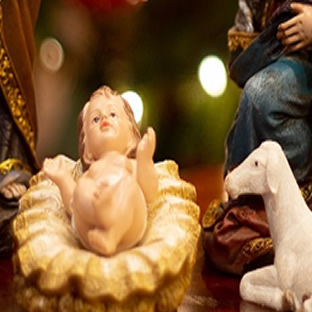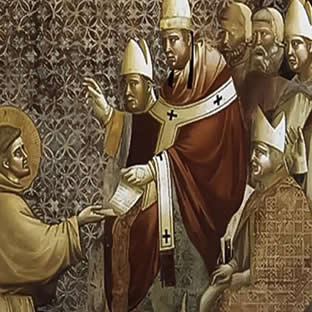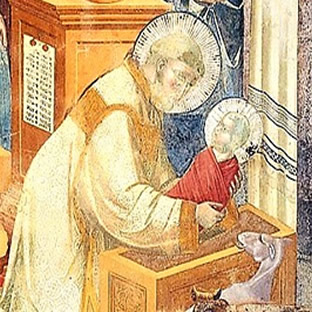Spirituality is fundamental on our path towards integral ecology. If we fail to cultivate our interior life, we cannot effectively care for the external world, and vice versa. Therefore, we need to “develop a spirituality” (LS 240) that helps us to perceive reality in an integral manner, recognizing it as a joyful mystery of communion and relationships. Spirituality provides the motivations we need for “a more passionate concern for the protection of our world” (LS 216; EG 261). It even enables us to experience “the intimate connection between God and all beings” (LS 234), allowing us to reach a mystical experience. We need that “interior impulse which encourages, motivates, nourishes, and gives meaning to our individual and communal activity”. Indeed, the life of the spirit must not be dissociated “from the body or from nature or from worldly realities, but lived in and with them, in communion with all that surrounds us” (LS 216). Nature must not be reduced to mere objects that we can know and, therefore, master. Its mystery is an invitation to savor, contemplate, and live. God has not revealed himself to increase our knowledge, but to establish a loving relationship with us. Indeed, all of creation…
La ecología tiene que estar presente en la evangelización de la Iglesia. Evangelizar es testimoniar una vida coherente con el evangelio, incluyendo nuestro comportamiento en el ámbito de la ecología. En efecto, “vivir la vocación de ser protectores de la obra de Dios es parte esencial de una existencia virtuosa”[1]. La perspectiva tiene que ser integral, pues formamos una gran familia y todo está relacionado. En consecuencia, “la acción de la Iglesia no sólo intenta recordar el deber de cuidar la naturaleza, sino que al mismo tiempo debe proteger sobre todo al hombre contra la destrucción de sí mismo” (LS 79; CV 51). Ese anuncio evangelizador “abraza todas las dimensiones de la existencia” humana (EG 181). Comentando un texto de las Confesiones (X 6,8) de San Agustín, J. Moltmann muestra una espiritualidad encarnada, que incluye todos los sentidos. “Cuando yo amo a Dios, entonces yo amo la belleza de los cuerpos, el ritmo de los movimientos, el brillo de los ojos, los abrazos, los sentimientos, los perfumes, los sonidos de esta creación variopinta. Todo quisiera yo abrazarlo cuando yo, Dios mío, te amo a ti, porque yo te amo con todos mis sentidos puestos en las criaturas de tu amor….
By making the manger this Christmas, we can evocatively express some fundamental truths of our faith. Francis of Assisi started this tradition in Greccio eight hundred years ago, beautifully portraying the closeness of the Incarnate God who became one with humanity and walks alongside us. Indeed, “with the simplicity of that sign, Saint Francis carried out a great work of evangelization”[1]. «Thanks to St Francis, the Christian people were able to perceive that at Christmas God truly became the “Emmanuel,” the God-with-us from whom no barrier nor any distance can separate us. Thus, in that Child, God became close to each one of us, so close that we are able to speak intimately to him and engage in a trusting relationship of deep affection with him, just as we do with any newborn baby»[2]. In that humble manger, nestled between the ox and the donkey, Francis of Assisi invites all to “feel” and “touch” the nearness, poverty, and tenderness of the Child Jesus who has placed “his dwelling among us” (Jn 1:14). “God appears as a child, for us to take into our arms. Beneath weakness and frailty, he conceals his power” (Ads 8). Indeed, “in the child Jesus, God…
On November 29, 2023, the Franciscans are celebrating the eighth centenary of the confirmation of their Later Rule (Regula bullata) by Pope Honorius III (November 29, 1223). This is one of the four great Rules of consecrated life, along with that of Saint Basil (eremitical), Saint Augustine (canonical), and Saint Benedict (monastic)[1]. Francis of Assisi wrote it at a time of internal tensions. Rather than trying to appease them with a commitment to precise norms, he prefers to appeal again to the grace of the origins; that is, to the evangelical ideal that had transformed his life (Test 1). His intention in writing it could be expressed with the biblical phrase: “I came so that they might have life and have it more abundantly” (Jn 10:10). For centuries, however, the Rule was seen as a predominantly juridical text. Pope Clemente V identifies 24 precepts in the Later Rule. Others raise the number of precepts to 28, 39, and even to 61. There were even claims that Christ himself had dictated it to Saint Francis. In making the religious profession, the friars vow to observe it, along with the three evangelical counsels, and therefore it was considered a mortal sin to…
This year we are celebrating the eighth centenary of the living nativity scene that Francis of Assisi held at Greccio (Italy), in 1223[1]. It is generally considered that this event gave rise to “the enchanting image of the Christmas crèche”[2] and to the “intense spiritual atmosphere that surrounds Christmas”[3]. Sadly, today we have turned Christmas into an excuse for consumerism. Between lights, shopping, and gifts we are losing the ability to contemplate the humility and poverty of the Child Jesus, who calls us to follow in his footsteps by faithfully observing the Gospel. Pope Francis invites us to “encourage” in our society the enchanting tradition “of the Christmas crèche”. He recognizes that it originated in the living nativity scene of Saint Francis in Greccio. This papal recognition does not negate the obvious similarities of that celebration with the medieval tradition of staging the Christmas mysteries. Saint Francis’ crèche was not the first staging of the nativity but its connection to the Eucharist, the way people present felt involved, and the charism of the Saint of Assisi may explain why the popular belief has considered Saint Francis as the initiator and propagator of the nativity scenes. Benedict XVI confirms that “the…





